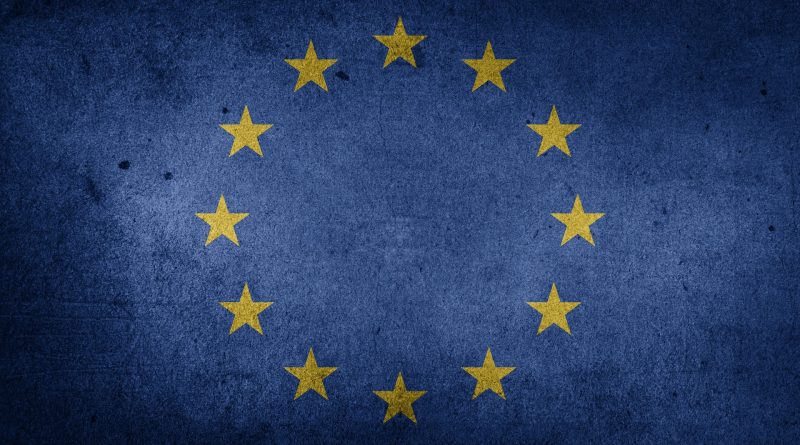10 Things to Read About Europeanization
Although its conceptualization has yet to obtain consensus among scholars, Europeanization has become an increasingly used term in a variety of social sciences, being most commonly applied, according to Featherstone (2003), to study the “domestic adaptation to the pressures emanating directly or indirectly from European Union membership”. Below, we gather a few influential works on this concept.
1) Europeanization of Domestic Politics and Institutions: The Case of France (1994)
While Europeanization was already a widely popular term before the publication of this article, in 1994, it is thanks to Robert Ladrech’s contribution that scholars were able to obtain one of the first precise definitions of the term. In this study, which remains one of the most referenced works on the subject, the author focuses on the impact of the European Communities on French policies and institutions, concluding that there had been an effect on the Fifth Republic’s institutional chance in the 1980’s, both in terms of its pace and direction.
2) The Politics of Europeanization (2003)
Edited by Kevin Featherstone and Claudio Radaelli in 2003, this volume is a reflection of their interest in the conceptualization of Europeanization and on its empirical application to different contexts. Using an innovative and broader perspective, the authors address a wide array of indicators, concepts and thematic issues to question and clarify significant processes of change in contemporary Europe.
3) The Europeanisation of National Foreign Policy: Dutch, Danish and Irish Foreign Policy in the EU (2001)
This seminal study, published by Ben Tonra in 2001, encouraged a wave of works focusing on Europeanization of foreign policy. Using the Netherlands, Ireland and Denmark as study cases, the author interviews several key EU and national policy-makers, finding clear that there are processes of Europeanization at play.
4) Europeanisation and Foreign and Security Policy: Undermining or Rescuing the Nation State (2005)
Written by Claudia Major, this paper was one of the first to include the argument that Europeanization should be seen as three-dimensional, since the EU provides Member States with the context for cross-border contacts, and exchange of expertise and information (cross-loading). The author also assesses the validity of applying the concept of Europeanization in the framework of the Common Foreign and Security Policy, arguing that it offers the Member State a chance to increase their capacity of international action, and cope with their national limitations.
5) Europeanization: New Research Agendas (2007)
This 2007 handbook, edited by Paolo Graziano and Maarten Vink, reviews the state of the art of Europeanization research by bringing together the most renowned scholars in the field, who reflect upon the research agendas that can be associated to the different aspects of the aforementioned phenomenon.
6) Pace-Setting, Foot-Dragging, and Fence-Sitting: Member State Responses to Europeanization (2002)
Written by a leading Europeanization author, this 2002 article by Tanja Börzel focuses on the two vertical dimensions of the process. As EU Member-States are motivated to ‘upload’ their national policies in order to minimize the costs for ‘downloading’, this work tackles their differences in policy preferences an action capacities, concluding that they can be ‘pace-setters’, ‘foot-draggers’ or ‘fence-sitters’.
7) Dimensions and Mechanisms of the Europeanization of Member State Foreign Policy: State of the Art and New Research Avenues (2011)
Nicole Alecu de Flers and Patrick Müller go over the literature on Europeanization of foreign policy, clarifying how it works and how it can be analyzed, as they highlight socialization and learning as the two key mechanisms of the process.
8) National and European Foreign Policies: Towards Europeanization (2011)
This book, edited by Reuben Wong and Christopher Hill, assesses the interaction between domestic and foreign policy-making in EU Member States, as well as the mutual influence they exert on each other. Using this three-dimensional approach, the scholars provide the reader with chapters on Europeanization in Italy, France, the UK, Germany, Greece, Spain, Finland, Poland and Slovenia, in a work that engages heavily and rigorously with theory.
9) The Europeanization of Portugal (1986-2006). A Critical View (2006)
José Magone’s study provides a critical analysis on the impact of European integration in Portuguese policy, presenting, in first instance, a political and social contextualization, which is followed by a debate regarding the concept of Europeanization. His work closes a gap in knowledge in one of the least research countries in Europeanization studies (see also António Raimundo, 2013) by examining four elements of this process, namely: national Parliament reaction; the impact of European structural funds upon the country’s economy and public administration; the Portuguese Council Presidencies of 1992 and 2000; and Europeanization within the realm of foreign policy.
10) Between Europeanization and Euro-Asianism: Foreign Policy Activism in Turkey During the AKP Era (2009)
This 2009 article by Ziya Ôniş and Şuhnaz Yılmaz represents a recent trend in Europeanization studies, which has started to include candidate countries for EU accession, particularly on the Eastern and Mediterranean neighborhood. As it focuses on Turkish foreign policy in the post-Cold War era, the authors argue that an initial wave of foreign policy activism increasingly put an emphasis on Europeanization during the initial periods of the AKP reign. More recently, however, a parallel shift towards Euro-asianism has occurred, and commitment to Europeanization has become weaker
![]() This work is licensed under a Creative Commons Attribution-NonCommercial-ShareAlike 4.0 International License.
This work is licensed under a Creative Commons Attribution-NonCommercial-ShareAlike 4.0 International License.



